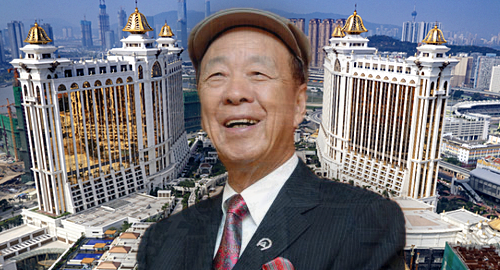 Macau casino operator Galaxy Entertainment Group (GEG) saw fewer VIP gamblers in the final quarter, and even playing extra lucky couldn’t save the company from a full-year revenue and earnings decline.
Macau casino operator Galaxy Entertainment Group (GEG) saw fewer VIP gamblers in the final quarter, and even playing extra lucky couldn’t save the company from a full-year revenue and earnings decline.
Figures released this week show the Hong Kong-listed GEG generated gaming revenue of HK$10.74b (US$1.34b) in the final three months of 2019, an 11.4% decline from Q4 2018. Non-gaming revenue was essentially flat and the construction materials unit did what it could, but adjusted earnings fell 6.5% to HK$4.05b ($519.6m).
Like most Macau casino operators, GEG’s VIP turnover was on the decline in Q4, falling 35% year-on-year to HK$169b. VIP win rose 0.3 points to 3.8%, but VIP revenue still fell 28.4% to HK$6.46b. Similarly, mass table drop fell while the win rate rose, leaving mass table revenue flat at HK$7.3b. Electronic gaming volume and win were largely flat, as was revenue at HK$659m.
GEG’s flagship Galaxy Macau property bore the brunt of these declines, pushing the property’s revenue down 10% to HK$9.33b and earnings down 6.4% to HK$3.2b. On the plus side, the property’s five hotels enjoyed “virtually 100%” occupancy.
StarWorld Macau suffered a larger percentage drop in VIP turnover but its VIP win jumped 0.8 points to 3.5%, well above the traditional range of 2.7%-3.0%. The net result was the property’s overall revenue falling 11% while earnings were off 12% to HK$782m.
Broadway Macau, which lacks a VIP component, actually reported a modest revenue rise based entirely on the property’s non-gaming amenities, which doubled the property’s Q4 earnings to HK$16m.
The three small City Clubs-branded gaming operations in non-GEG Macau hotels actually saw their revenue jump to HK$566m thanks to an energized VIP segment but earnings dipped 3% to HK$28m.
For 2019 as a whole, GEG’s revenue was down 6% to HK$51.9b as gaming revenue fell 7.3% to HK$43.6b. Across the board increases in win percentages couldn’t offset the fact that fewer gamblers were gambling like they used to. Full-year earnings fared better, falling only 2.2% to HK$16.5b.
GEG noted that investor sentiment had “experienced periods of fluctuation” last year, spurred by the US-China trade war, a slowing global economy, Macau’s VIP smoking ban, Hong Kong’s street protests and increased competition from other Asia-Pacific casino markets.
Looking ahead, GEG addressed the coronavirus crisis that forced all Macau casinos to close their doors for 15 days before phased re-openings were allowed last week. With the crisis far from over, GEG said it was unable to project the full financial impact on its 2020 performance.
On Thursday, GEG chairman Lui Che Woo told local media that the company’s daily expenses during the shutdown were “about US$3m” but he added that “at present, we have not asked the Macau government on any [tax] concessions” to lessen the burden. The subject of potential tax breaks was first raised last week by the CEO of GEG rival SJM Holdings.
Lui (pictured) also said the crisis wouldn’t impact the timeline for delivering Galaxy Macau’s Phases 3 & 4, which are currently slated to open by the end of this year. The expansion will boost GEG’s hotel capacity by 4k rooms, as well as a 16k-seat arena, 400k-square-feet of MICE space plus a bevy of retail options.
Unlike some of its rivals, GEG has a stellar balance sheet, with a net cash position of HK$51.7b and total debt of just HK$600m. As such, GEG feels confident that it can make a good impression in the beauty contest for the three Japanese casino licenses.
